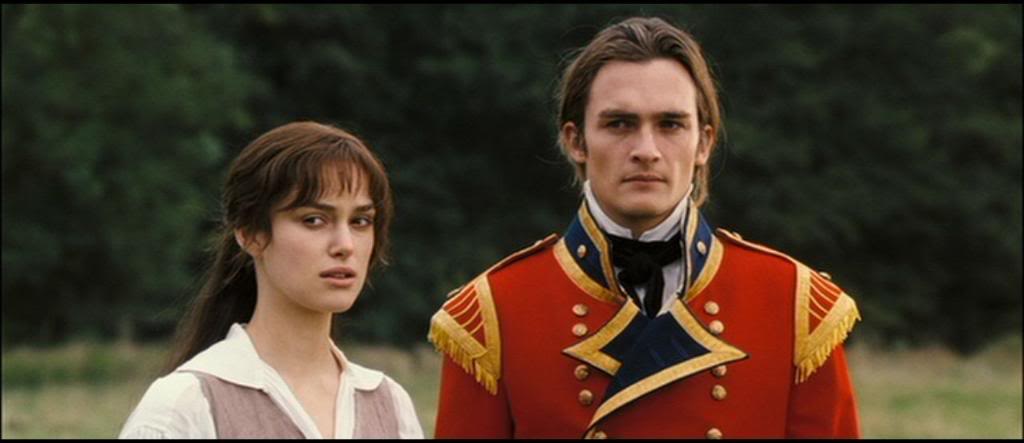A Minimal but Perfect Summary of Pride and Prejudice
By: Sarah Dillon - Britannica

The novel opens with one of the most famous lines in English literature: “It is a truth universally acknowledged, that a single man in possession of a good fortune, must be in want of a wife.” The statement is seemingly what Mrs. Bennet thinks as she sets her sights on the newly arrived Bingley, who she is sure will make a suitable husband for one of her daughters. At a ball, Bingley takes an immediate interest in the beautiful and shy Jane.

The encounter between his friend Darcy and Elizabeth is less cordial. Although Austen shows them intrigued by each other, she reverses the convention of first impressions: the pride of rank and fortune and prejudice against the social inferiority of Elizabeth’s family hold Darcy aloof, while the pride of self-respect and prejudice against Darcy’s snobbery hold Elizabeth equally aloof.
The pompous Collins soon arrives, hoping to marry one of the Bennet sisters. Mrs. Bennet steers him toward Elizabeth, but the latter refuses his offer of marriage . He instead becomes engaged to her friend Charlotte. During this time, Elizabeth encounters the charming Wickham. There is a mutual attraction between the two, and he informs her that Darcy has denied him his inheritance.

After Bingley abruptly departs for London, Elizabeth’s dislike of Darcy mounts as she becomes convinced that he is discouraging Bingley’s relationship with Jane. Darcy, however, has grown increasingly fond of Elizabeth, admiring her intelligence and vitality. While visiting the now-married Charlotte, Elizabeth sees Darcy, who professes his love for her and proposes. A surprised Elizabeth refuses his offer, and, when Darcy demands an explanation, she accuses him of breaking up Jane and Bingley and of denying Wickham his inheritance. Darcy subsequently writes Elizabeth a letter in which he explains that he separated the couple largely because he did not believe Jane returned Bingley’s affection.

He also discloses that Wickham, after squandering his inheritance, tried to marry Darcy’s then 15-year-old sister in an attempt to gain possession of her fortune. With these revelations, Elizabeth begins to see Darcy in a new light.
Shortly thereafter the youngest Bennet sister, Lydia, elopes with Wickham. The news is met with great alarm by Elizabeth, since the scandalous affair—which is unlikely to end in marriage—could ruin the reputation of the other Bennet sisters. When she tells Darcy, he persuades Wickham to marry Lydia, offering him money. Despite Darcy’s attempt to keep his intervention a secret, Elizabeth learns of his actions. At the encouragement of Darcy, Bingley subsequently returns, and he and Jane become engaged. Finally, Darcy proposes again to Elizabeth, who this time accepts.
The Code of Conduct and Terms of Service must be complied with.
Any comment posted about politics or religion not relevant to the English Literature articles that are posted will be deleted.
The administrator reserves the right to delete any comment he considers to be offensive, off topic or of no value.
Videos or images or links to sources that the Administration cannot open must be described or explained when requested or they will be deleted.
 Article is LOCKED by moderator [Buzz of the Orient]
Article is LOCKED by moderator [Buzz of the Orient]





AT LAST!!! Finally, my opinion has been confirmed and I am so happy to see it. In high school we were required to read and submit a book report on Jane Austen's novel Pride and Prejudice. In my report I said that I thought that BOTH Darcy and Lizzie had indicated both pride and prejudice aimed at each other. My teacher disagreed and gave me a shitty mark. She, as so many others could only see that Darcy exhibited such behaviour. And now, in the summary I have posted I HAVE BEEN VINDICATED . It only took 70 years.
Quotation from the article:
I need to celebrate!!!
The NT members have spoken - actually by NOT speaking - so for next while I don't intend to bore them with articles that are not about the loves of their lives - politics, guns and football. My time is better spent watching more movies.